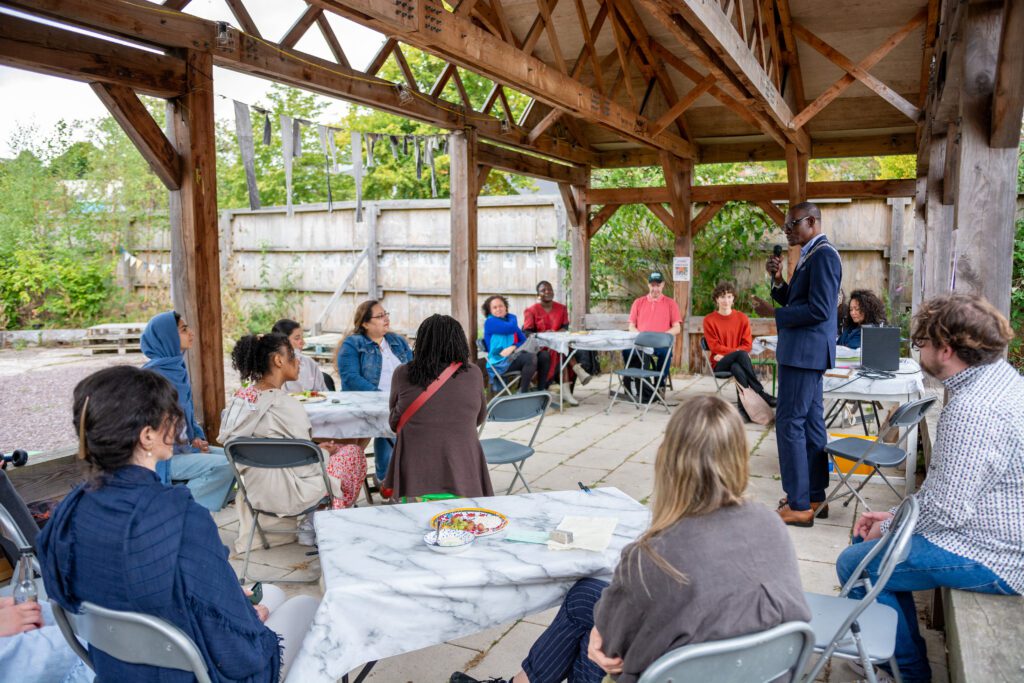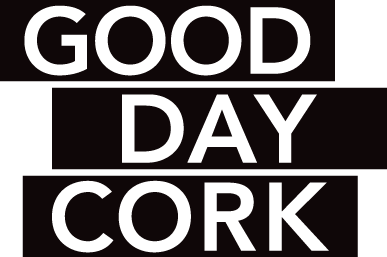Living Heritage: Food for thought
Documentary Review by Catriona Reid

Living Heritage is a wonderful 2-part audio documentary exploring the connection between nature, heritage, and us humans. Recorded on the grounds of the beautiful University College Cork campus, near the Glucksman Gallery, this is a really lovely listen for anyone wanting to engage more with the question of what nature means to all of us, and in what ways can we enjoy the nature we are blessed with in Ireland.
As people living in Ireland, we constantly hear from our visiting family, friends, and colleagues that Ireland is the greenest country they have visited, if not one of the greenest, keeping true to its nickname of the “Emerald Isle”.
I don’t think it’s fair that some members of society should have more access to nature than others….
Sometimes we can even take it for granted, but it is important to take a moment and reflect on what nature means for us, and why it’s worth protecting. This podcast gave me lots of food for thought on exactly this topic.
Hosted by Cethan Leahy, we explore these questions through a series of interviews with women from diverse backgrounds and reflect on the connections they felt with nature in their childhoods, and how they maintain this connection here in Ireland. Some describe swimming in the sea to connect with nature, others walking barefoot or sitting on a bench and being mindful of the sounds of nature.
I found Dr Manizha Khan’s story particularly thought provoking as she described both the destruction of nature occurring in Afghanistan, and the restrictions for women to access nature because of the Taliban. I don’t think it’s fair that some members of society should have more access to nature than others, when we are all human at the end of the day, and areas of natural beauty should be free and open for all to access.
This made me reflect on how often our connections with nature and our childhood memories of nature are so often intertwined with family – for me, this aspect of nature helps me feel more grounded.
I absolutely adore spending time by the coast and on the beach, and we have a very strong cultural heritage with the ocean in Ireland. A young poet interviewed for part 2 of Living Heritage reflected on this and the comfort she finds from being near the ocean. Lavie Olupona tells us how Inchydoney Beach in west Cork is one of her favourite spots and how it’s a place she also feels connected to her family and her roots, since there is a bench nearby dedicated to her grandfather. This made me reflect on how often our connections with nature and our childhood memories of nature are so often intertwined with family – for me, this aspect of nature helps me feel more grounded.
Others reflected on the many things nature can provide us with, such as using sand as a natural salt scrub, or shelter under a tree on a rainy day. Given how so much of our daily lives revolves around screens and computers, I think it can be easy to forget them importance of nature, or indeed to downgrade it in the interests of material gains.
To offer a nugget of hope though, I think that if we are intentional about getting outdoors as much as we can, and being present in the moment, we can find inspiration and hope in the beauty that surrounds us in Ireland.
As we have seen in recent decades, the cascading impacts of climate change, intensive agriculture, and invasive species have all contributed to biodiversity loss. This naturally impacts on our daily lives as we witness the effects of this on our natural environment, and we are always hearing about it on the news too, so it can sometimes feel like there is little hope.
To offer a nugget of hope though, I think that if we are intentional about getting outdoors as much as we can, and being present in the moment, we can find inspiration and hope in the beauty that surrounds us in Ireland.
Given how so much of our daily lives revolves around screens and computers, I think it can be easy to forget them importance of nature, or indeed to downgrade it in the interests of material gains.
About Catriona Reid
Over the years and throughout my college career, having departed from politics, this interest developed into a research interest in climate change, which led me to write my dissertation on climate change communication, seeking to answer the question of which climate messages are the most effective for inspiring young people to get involved in collective climate action.
Currently, I am a research assistant in the SFI MaREI Centre in Cork where I am working across multiple projects focused on community and stakeholder engagement in climate action and restoration.”
No related posts.

